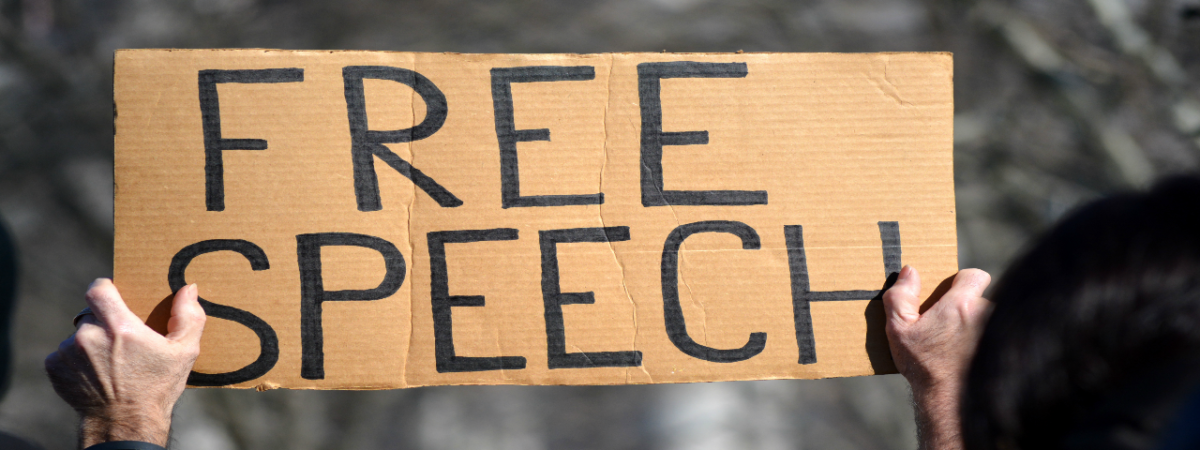In defence of the Runnymede Trust and charitable think tanks
SUGGESTED



RT, to be clear, believes it exists for a political purpose. They interpret their two educational charitable objects in their 2019 accounts in three ways. One of them is “Influencing policy at all levels through providing thought leadership and robust evidence”. This is either a very poor choice of words or straightforwardly illegal for a charity:
“A body which has a political purpose cannot be a charity”
–Analysis of the law underpinning The Advancement of Education for the Public Benefit
Think tanks can be charities. We can publish research and promote ideas from a particular school of thought or “from a generally accepted position that something is beneficial” (CC Regulatory Alert 2018). We can publish research that is “sufficiently balanced and neutral as required of an educational charity under charity law” (CC on the Smith Institute 2008). We can do so “in the round” (CC withdrawal of IEA sanction 2019). It is then entirely legitimate for RT to publish research rooted in a critical race theory approach, provided they are not party political, review alternative points of view, and offer options not campaigns (IEA Rules of Thumb for researchers 2021).
Think tanks can be political. All charities are allowed to campaign for changes in the law in support of their charitable objects. Oxfam can campaign for policies that enable poverty relief, Greenpeace for environmental outcomes, and the Church of England for upholding Christian values. All can do so in a biased fashion, except education charities, where the sufficient balance test applies to their educational output alone. Where education think tanks offer particular positions on matters of public controversy without balance, it is not considered charitable. The IEA’s 2018 Plan A+ was first reviewed as having failed this test, before the IEA’s wider output, including many pro-EU and alternative Brexit model pieces, was considered in the round. After the sanction was withdrawn it was suggested that more caution was used with declarative statements like “The Government must” or “should (do x)”. As opposed to “could” statements which “enable the reader to make up their own mind”.
The England Civil Society report in that regard is in trouble. It contains 80 “should” and 35 “must” statements across over 80 specific “recommendations” for UK Government policy or action. It reads straightforwardly as a lobbying document launched with a lobbying purpose to encourage the UK Government to change laws. It is selective in its use of evidence in many places, the impact of the Brexit referendum on hate crime is analysed using two statistics rooted in self-reporting and described polemically as the result of “a (damaging) failure to address social fractures”. This raises questions about its educational value under the unclear guidance set out in the CC’s Regulatory Alert.
RT may have also broken lobbying regulations. By taking money from the EHRC for the production of a report designed to lobby the UK Government, without registering as consultant lobbyists with the ORCL, they may have broken the provisions of the 2014 Lobbying Act. The EHRC may in turn have broken rules on lobbying for non-departmental public bodies – “NDPBs must never employ external firms or consultants to influence or attempt to influence Parliament, Government or political parties”. If so, this would be an extraordinary example of one taxpayer funder regulator paying a regulated body to avoid regulations.
It is also possible that RT are already under investigation by the Charity Commission for political activity having been targeted with a complaint by 20 Conservative MPs in April for their response to the Government’s Commission on Race and Ethnic Disparities (CRED). We cannot know this, and then neither may RT, as the regulator has the powers of a quasi-Stasi-like agency to investigate anything they feel like investigating, in secret, under the wrapper of a Regulatory Compliance Case. They are not required to tell the target of what they are accused. In 2019 the IEA had to hit the CC with several Freedom of Information Requests, leading to them being investigated for non-compliance by the Information Commissioner in order to get them to say of what we were accused. They eventually revealed the source of our 2018/19 case was a politically motivated complaint by Greenpeace. This in turn supported at the time by a Labour Shadow Cabinet member and the Guardian. (The Guardian, by coincidence, are or were a donor to RT.)
But would it be right for RT to be sanctioned for this? The purpose of charity regulation is not to enable cancel culture. That hard-left activists attempted to delegitimise the IEA should not be good grounds for liberals or conservatives to take out ‘one of theirs’ – not even if they have a far stronger case. It is ultimately a matter for the regulators, but we would surely all be better off with a proportionate reaction enabling RT to bring their illegal activities within the law? This might include an objects extension to include ‘promoting community interests’ to allow them to lobby on matters of racial justice (a solution granted to the IPPR in 2014). This would include giving them time to rewrite their report and republish it in line with guidance, rather than, as happened to us, a requirement to burn the report, followed by guesswork on what might be legal. It would include cooperative support from the CC, rather than a confrontation. They are perfectly capable of this, our relationship with them prior to 2018, a time in which many of these difficult questions were tested, was constructive and amicable.
Better still, the CC and Government ‘could’ (see what I did there) consider a new public benefit test, advancing debate for public benefit. This would allow think tanks and other bodies (like student unions) engaged in the promotion of the democratic debates underpinning social progress to clarify their legal status. It would remove some of the ambiguity around the legitimacy of public policy research and how it can be promoted. It would be “reasonably analogous” to the 11 public benefit tests in the 2006 Charity Act (a fusion of education and community interest), and therefore a legal expression of charitable purpose. It would have a specific benefit of reducing polarisation by forcing culture warriors to talk rather than engage by writ through the regulators. The clarified purpose would require RT to come out of their critical race theory bunker, and test their ideas with groups that disagree with them more often. A process that would improve those ideas and provide balance in the round to the public benefit. We are happy to debate them anytime.
Charitable think tanks were legal entities for decades prior to the 2006 Charity Act. The changes have caused a chilling effect on our activities through regulatory ambiguity and poor-quality guidance, implemented at times by unskilled partisans. This in turn is wasting taxpayers’ money on vexatious cases better resolved by dialogue and engagement. This could be resolved without changing very much, to the benefit of regulators, charities, policymakers, and fundamentally the public. If that requires changes to the current Charities Bill passing through Parliament, it could be time well spent.




